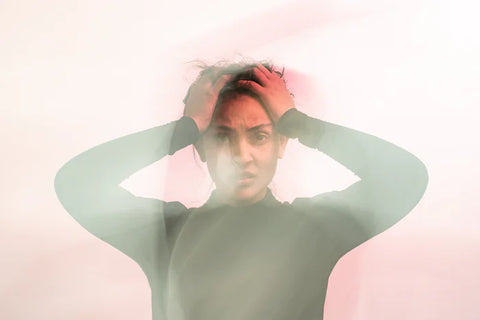
Anxiety is a common mental health condition that affects millions of people worldwide. While it's a natural response to stress, excessive and persistent anxiety can significantly impact our daily lives. Thankfully, there are various strategies to manage anxiety, and one promising option gaining popularity is incorporating CBD (Cannabidiol) into your anxiety reduction routine. In this blog article, we will explore what anxiety is, its causes, the importance of addressing it, how CBD can alleviate symptoms, and practical ways to integrate CBD into your daily routine for successful anxiety therapy.
1. Understanding Anxiety:
Anxiety is a complex emotional state characterized by feelings of fear, worry, and unease. It is normal to experience occasional anxiety, but when it becomes chronic and disrupts daily functioning, it may require attention and intervention.
2. Common Causes of Anxiety:
Anxiety can arise from a combination of factors, including genetic predisposition, environmental stressors, traumatic experiences, chemical imbalances in the brain, and lifestyle factors such as poor sleep, inadequate nutrition, and lack of exercise.
3. The Importance of Treating Anxiety:
Untreated anxiety can lead to various physical and emotional issues, including sleep disturbances, weakened immune function, decreased productivity, and an overall diminished quality of life. Addressing anxiety is vital for maintaining overall well-being.
4. How CBD Alleviates Anxiety Symptoms:
CBD, a non-intoxicating compound found in the cannabis plant, has gained attention for its potential anxiolytic (anti-anxiety) properties. It interacts with the endocannabinoid system in the body, which plays a role in regulating mood, stress response, and emotional well-being. CBD may help alleviate anxiety through its influence on serotonin receptors, which are involved in mood regulation.
5. Incorporating CBD into Your Anxiety Reduction Routine:
Consult with a Healthcare Professional:
Before incorporating CBD into your anxiety management routine, consult with a qualified healthcare professional, especially if you're already taking medications or have existing health conditions.
Choose High-Quality CBD Products:
Selecting reputable CBD products is essential for safety and efficacy. Look for third-party lab-tested products that provide information about their CBD content, THC levels, and other ingredients.
Start with Low Dosage:
Begin with a low CBD dosage and gradually increase it as needed. Everyone's body is different, so finding the right dosage may require some trial and error.
Use Full-Spectrum CBD:
Consider using full-spectrum CBD products that contain a variety of cannabinoids, terpenes, and flavonoids. These compounds work synergistically, potentially enhancing the overall calming effect.
Regularity is Key:
Consistency is crucial when using CBD for anxiety. Incorporate it into your daily routine to experience maximum benefits over time.
Combine with Other Anxiety-Reducing Activities:
CBD can complement other anxiety-reducing activities such as meditation, yoga, deep breathing exercises, or spending time in nature.
Create a Bedtime Ritual:
Using CBD before bedtime can promote better sleep, which is essential for managing anxiety. Create a calming bedtime ritual that includes CBD to unwind and relax before sleep. Check out our sleep hygiene article to learn more.
Keep a Journal:
Track your CBD usage and note any changes in anxiety symptoms. This can help you gauge its effectiveness and adjust the dosage if necessary.
Incorporating CBD into your anxiety reduction routine can be a valuable addition to your wellness journey. However, it is essential to approach it with informed decision-making, starting with professional advice and opting for high-quality products. By combining CBD with other anxiety-reducing strategies and maintaining consistency, you can work towards finding relief and improving your overall mental well-being. Remember, everyone's response to CBD is unique, so be patient and give yourself the time needed to discover the best approach for your anxiety therapy.
